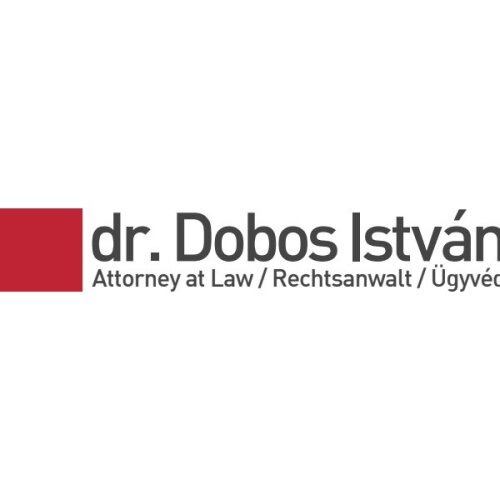Best Renewable & Alternative Energy Lawyers in Hungary
Share your needs with us, get contacted by law firms.
Free. Takes 2 min.
Or refine your search by selecting a city:
List of the best lawyers in Hungary
About Renewable & Alternative Energy Law in Hungary
Hungary has made significant progress in promoting the use and regulation of renewable and alternative energy sources over the last decade. The Hungarian government recognizes the importance of reducing carbon emissions, decreasing dependence on imported fossil fuels, and aligning with the European Union's climate goals. This commitment is reflected in national strategies and evolving legal frameworks specifically designed to govern the production, distribution, and utilization of energy from sources like solar, wind, biomass, hydropower, and geothermal energy.
As the sector grows, so do the complexities of its legal environment. The interplay between national statutes, EU directives, local regulations, and technical standards requires careful navigation for both individuals and companies interested in renewable energy projects.
Why You May Need a Lawyer
The renewable and alternative energy field is highly regulated, meaning there are many areas where legal assistance can be crucial. Here are some common situations where consulting a lawyer becomes important:
- Navigating licenses and permits for renewable energy installations
- Drafting and negotiating contracts with suppliers, landowners, or utility companies
- Compliance with local, national, and EU environmental and energy regulations
- Managing land use and property rights involved in installing equipment or structures
- Handling disputes, enforcement actions, or litigation arising from project development or energy supply agreements
- Understanding feed-in tariffs and other incentives specific to renewable energy investments
- Ensuring proper grid connection approval and negotiating grid access agreements
Legal experts specialized in energy law can help individuals and companies to mitigate risks, maximize returns, and avoid regulatory pitfalls.
Local Laws Overview
In Hungary, renewable and alternative energy are regulated by a combination of national statutes, ministerial decrees, and EU laws. Some of the most important legal considerations include:
- Act LXXXVI of 2007 on Electricity - This core law sets the framework for all electricity-related activities, including generation from renewable sources.
- Feed-in Tariff (KÁT) system - While this has evolved to the METÁR system, it provides for the purchase of renewable energy at regulated prices.
- Act LVII of 2015 on Energy Efficiency - Encourages energy savings and renewable development.
- Acts and decrees related to environmental protection and impact assessments - These often affect project location, construction, and operations.
- Grid connection requirements - Managed by the Hungarian Energy and Public Utility Regulatory Authority (MEKH).
- Building and planning regulations - Local municipalities have authority over zoning and land use, which can impact project development.
- EU Renewable Energy Directives - Hungary’s national regulations are required to comply with broader European targets.
The regulatory landscape for renewable energy in Hungary is continuously changing as the government adapts to technology advances and EU regulations. Legal guidance is valuable for staying current and compliant.
Frequently Asked Questions
What types of renewable energy are most common in Hungary?
Solar energy has seen rapid growth in recent years, both for residential and industrial use. Biomass, biogas, and geothermal energy are also present, while wind energy faces development restrictions.
Do I need permission to install solar panels on my home?
Small-scale residential installations usually need notification to the local utility and compliance with safety regulations, though larger systems often require permits and technical approval.
What incentives are available for renewable energy investments?
Incentives include support through the METÁR system, government grants, EU funds, and certain tax benefits. Eligibility and availability can change, so legal advice is recommended.
Can foreign companies invest in Hungarian renewable energy projects?
Yes, the Hungarian legal framework permits foreign investment, though there may be specific requirements or restrictions based on the project type and location.
How are feed-in tariffs determined in Hungary?
Feed-in tariffs are set by the government and managed by MEKH, with qualifying projects receiving fixed rates for their electricity production under the METÁR system.
What is the role of local municipalities in renewable energy projects?
Local governments typically manage building permits, zoning, and certain environmental assessments that may impact the approval and operation of renewable energy installations.
How does grid connection work for renewable energy producers?
Producers must apply for grid connection approval from the grid operator and comply with technical requirements. The process can vary depending on the size and type of installation.
Is environmental impact assessment always required?
Not always. Assessment is typically mandatory for larger projects or those in protected areas. Legal assistance can help clarify specific obligations.
What are the main challenges in developing renewable energy projects?
Common challenges include navigating bureaucracy, changing regulations, securing financing, land use restrictions, and community acceptance.
Where can I appeal if my renewable project is denied approval?
Denials can generally be appealed to higher administrative authorities or through the courts, depending on the reason for rejection and the agency involved.
Additional Resources
If you need more information or support on renewable and alternative energy matters in Hungary, consider contacting the following organizations:
- Hungarian Energy and Public Utility Regulatory Authority (MEKH) - Regulates the energy sector and issues licenses.
- Ministry of Energy - Develops and oversees energy policies and programs.
- Hungarian Chamber of Commerce and Industry - Can provide information and support for businesses in the sector.
- Hungarian Association of Renewable Energy (Magyar Megújuló Energia Szövetség) - Represents renewable energy interests.
- European Energy Network (ENR Network Hungary) - Contains information on energy efficiency and sustainability programs.
Next Steps
If you are embarking on a renewable or alternative energy project in Hungary, or facing legal questions in this field, the following steps can help guide you:
- Define your goals and the type of energy project or investment you are considering.
- Gather information about required permits, subsidies, and regulations that may apply to your activities.
- Contact the relevant authorities for preliminary information or advice.
- Consult with a lawyer specializing in Hungarian energy or environmental law to clarify your legal rights, obligations, and opportunities.
- Prepare the necessary documents with professional legal assistance to avoid delays or compliance issues.
- Stay updated on regulatory changes that may affect your project.
By taking these steps and seeking the appropriate legal support, you improve your chances of a successful, compliant, and sustainable renewable energy project in Hungary.
Lawzana helps you find the best lawyers and law firms in Hungary through a curated and pre-screened list of qualified legal professionals. Our platform offers rankings and detailed profiles of attorneys and law firms, allowing you to compare based on practice areas, including Renewable & Alternative Energy, experience, and client feedback.
Each profile includes a description of the firm's areas of practice, client reviews, team members and partners, year of establishment, spoken languages, office locations, contact information, social media presence, and any published articles or resources. Most firms on our platform speak English and are experienced in both local and international legal matters.
Get a quote from top-rated law firms in Hungary — quickly, securely, and without unnecessary hassle.
Disclaimer:
The information provided on this page is for general informational purposes only and does not constitute legal advice. While we strive to ensure the accuracy and relevance of the content, legal information may change over time, and interpretations of the law can vary. You should always consult with a qualified legal professional for advice specific to your situation.
We disclaim all liability for actions taken or not taken based on the content of this page. If you believe any information is incorrect or outdated, please contact us, and we will review and update it where appropriate.
Browse renewable & alternative energy law firms by city in Hungary
Refine your search by selecting a city.

















